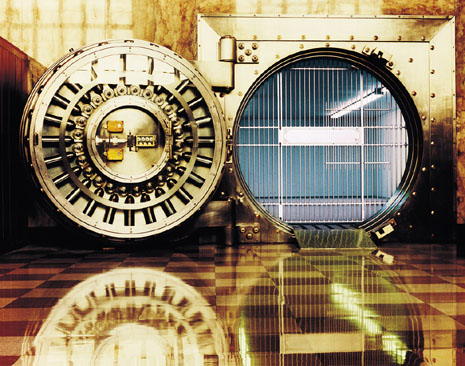
Offshore Bank Account: US Tax Compliant Offshore Banking Options
The First Step to Freedom

An Offshore Bank Account will allow you to diversify your investments, facilitate asset protection, and is the first step in moving you and/or your assets abroad. Offshore banking facilities are the first piece of the puzzle when forming an offshore corporation, offshore Self Directed IRA LLC, or international trust.
When it comes to selecting an offshore bank and offshore banking jurisdiction, I recommend only the safest and most secure financial institutions in the world. I have strong personal relationships with secure offshore banks that offer my clients the highest level of privacy, stability and safety. Many of these relationships have been more than a decade in the making and are founded on face-to-face meetings, years of transactional history, and mutual respect.
Note: You can usually open your offshore bank account from home and via courier based on our review, due diligence, and recommendation. Some banks still require an in person meeting, but these are rare.
I regularly review the best offshore banking opportunities for international business, private banking and investment products and recommend those I believe to be best suited to your individual situation. New banking options and opportunities are covered regularly in my free newsletter.
[br]
[contact-form-7 id=”2973″ title=”sign-up-for-all-page”]
All the banks I have chosen to work with meet my high standards on confidentiality, have an excellent reputation, offer a wide range of financial products, and equally importantly, operate in countries with political and economic stability.
There are many benefits of an offshore bank account for investment management, business operations, tax planning, and asset protection. Some of these benefits include:
- A wide range of investment products and funds are available from offshore banks, especially from those with offshore banking private client groups, which are not accessible from the U.S.
- You can usually choose to hold your money in any major currency, which can result in the significant appreciation of your account. If, for example, your account is in Swiss Francs and the CHF rises relative to the USD, you will have an effective gain.
- Interest rates at offshore banks are significantly higher than American banks. For example, large U.S. banks are paying around than ½ of 1%, while the smallest internet banks are approximately 1.05%. In Panama, established banks like Banco Universal are offering 1 year CDs at 4%, while newer banks are paying as much as 4.5% on a 2 year CD. From time to time, we have found Credit Union (Cooperative) CDs at 8.5%. Offshore Banking Rates quoted are as of the posting of this article and subject to change.
- A well planned structure should ensure that your offshore bank account is not taxed by local government agencies. To maximize tax efficiency, you want to incorporate in one tax efficient country, hold your offshore bank account in second tax exempt country, reside in a third business friendly nation, an hold a passport from a fourth homeland. These are the four primary puzzle pieces to building a life and business abroad.
- A major component of the Foreign Earned Income Exclusion’s residency test is that your corporation and offshore banking are, at least in part, outside of the United States.
- If you have a U.S. tax debt, the IRS can seize bank accounts located in the United States, Canada, the UK, and France. If you are living and working abroad, and have a U.S. tax issue, care should be taken to avoid your accounts being levied while you negotiate a settlement with the Service.
- An offshore bank account is an indispensable tool for those conducting international business. Many international customers prefer to send payments to non-U.S. banks and avoid the American bureaucracy all together. I expect this phenomenon to become even more prevalent as new FACTA regulations come in to affect.
- An Offshore bank account can be combined with a U.S. account. If your clients are in the U.S., you might need to maintain a merchant account and bank account in the U.S., either in the name of your offshore company or a U.S. LLC. Credit card processing rates and depositing of checks are much more efficient in the States and wire transfer rates can be prohibitive on small transactions. Careful tax planning is required in this situation, but the savings can be significant.
- Civil creditors in the U.S. may be able to freeze your U.S. bank accounts while a dispute is pending…and empty them if is a judgment is entered against you. Moving funds in to an offshore account before a problem arises is the key to offshore asset protection.
[br]
The most common question I get on offshore banking is whether these banks are safe. As stated above, I have worked for years to forge relationships with only the best and most secure banks in the world.
With that in mind, I would like to point out that offshore banks are often significantly more stable than American banks because they operate under much tighter regulatory and lending regulations. To quote from one of my recent newsletter articles: “According to the August 2012 issue of Global Finance, only 5 U.S. banks are in the top 50 for safety. Of these, the first, Bank of New York Mellon, doesn’t appear until #29, followed by CoBank ACB at #32, U.S. Bankcorp at #37, Northern Trust Corp at #39, and Wells Fargo at #48…The United States is not even the safest jurisdiction in North America. Canada…has seven banks in the top 50, compared to our five.”
An offshore bank account is a fundamental piece of your international diversification puzzle. It’s especially important in times like these when currency controls and government regulations are getting ever more intrusive, slowing down international business and transactional flow. An offshore bank account allows you to internationalize your business and to place part of your wealth outside of your country, so that you never risk having the government freeze or confiscate all of your assets.

Leave a Reply
Want to join the discussion?Feel free to contribute!